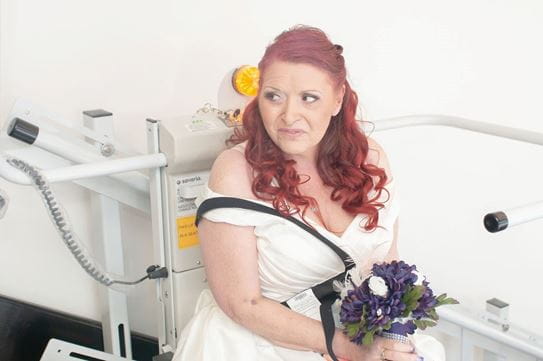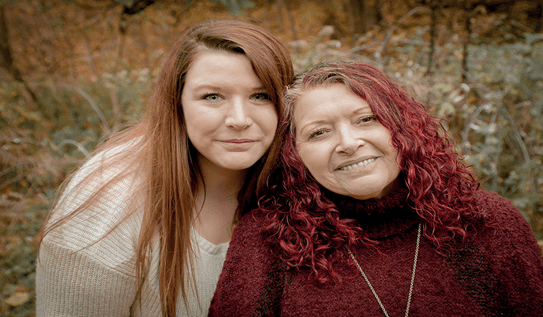After witnessing the profound impact pandemic restrictions had on her mother’s emotional and physical health, Chantel Bourgeois hopes her story will inspire more people to support improved access to palliative care.
With special precautions in effect due to COVID-19, people with cancer and their caregivers are facing new challenges with palliative and end-of-life care. For Chantel Bourgeois, pandemic restrictions prevented her from being able to visit her mother, Debra Meyer, during her stay in hospice. Spending much of her time alone and unable to see her family, Chantel believes the pandemic contributed to Debra’s health decline and deprived her of a critical support system when she needed it most.
Facing new obstacles during Debra's cancer journey
In June 2019, Debra was having trouble breathing and thought she may have pneumonia, so she visited a local clinic to have an x-ray taken of her chest. Doctors discovered a tumour within Debra’s x-ray and she was officially diagnosed with lung cancer. She began treatment right away and had her first surgery in August 2019.
As Debra’s treatment carried over into the pandemic, she was soon faced with unexpected obstacles. Besides having to isolate from her friends and family because she was immunocompromised, interventions that were essential to Debra’s cancer care were postponed because of the pandemic.
“When COVID-19 hit, things became a struggle because appointments were getting cancelled and everything was being rescheduled,” says Chantel Bourgeois. “There were so many different restrictions and rules that were constantly changing, which made managing her treatment increasingly confusing and chaotic.”
Nearly a year after her diagnosis in late April 2020, Debra’s health took a turn for the worse and she had to spend a week in hospital. Oncologists arranged for Debra to have a CT scan, and soon after her family was informed that her cancer had metastasized and that she would soon require end-of-life care. She moved into Stedman Community Hospice in Brantford, ON, on May 6, 2020.

Struggling to spend time together
Because of the pandemic, only Chantel was allowed to go in with Debra when she was first admitted to hospice and she was only able spend an initial 24 hours alone with her mom before having to leave. With restricted access and only one person permitted to enter Debra’s room at a time, much of her family were forced to visit her from a distance through a glass window.
“During a normal hospice and palliative care journey, the person is surrounded by their support system and their room is so full of love,” says Chantel Bourgeois. “It’s heartbreaking to think that my mom had to be alone almost the entire time. It feels like because of COVID-19, her experience was robbed from us.”
Unfortunately, many people undergoing palliative and end-of-life care have been unable to access their full support system during the pandemic, and as a result are feeling increasingly isolated and alone.
“When I look back on this journey, I realize so much that my mom let go. She gave up because she had no one there,” says Chantel Bourgeois. “She was no longer surrounded by her family members and her grandkids — the things that made her fight and the things that made her happy were taken from her.”

Hoping for improved palliative care and cancer resources
After spending less than a month in hospice care, Debra sadly passed alone without her family by her side. Having faced the challenges of COVID-19 as a caregiver and after witnessing the profound impact that pandemic restrictions had on her mother’s emotional and physical health, Chantel hopes that our healthcare system will prioritize the needs of people who are receiving palliative care and ensure that no one will have to face cancer alone.
“Nobody deserves to die alone, without a familiar face, soothing words and a hand to hold. They do not deserve to spend their final days looking at the faces of those they love through a window, unable to hear them clearly, unable to touch them and unable to feel their love. This was not the way we had pictured her final days.”
As the voice for Canadians who care about cancer, the Canadian Cancer Society (CCS) remains committed to supporting people with cancer and their caregivers by ensuring they have improved access to information, education, tools and supports they need. Throughout the pandemic and beyond, all people should have access to affordable, culturally safe, high-quality palliative care regardless of where they live and in what setting they choose to receive care.
